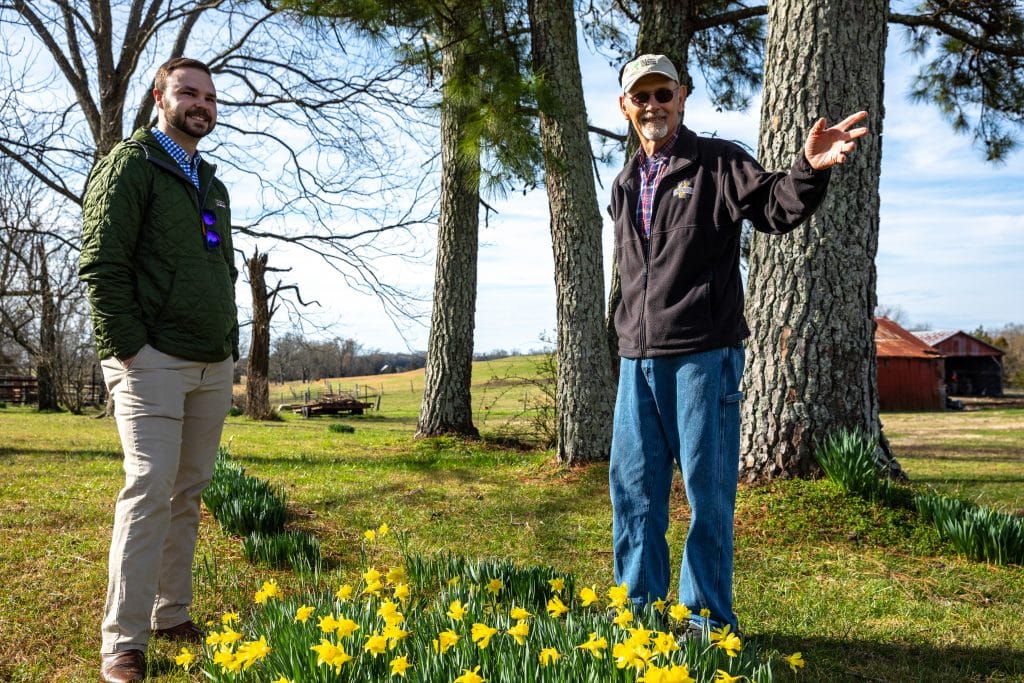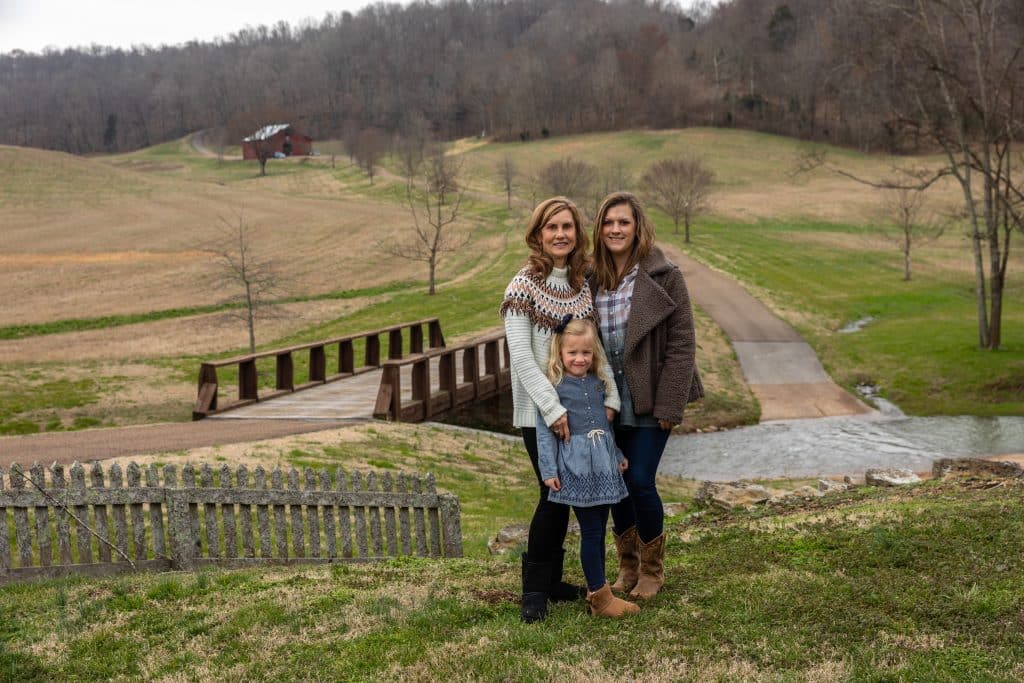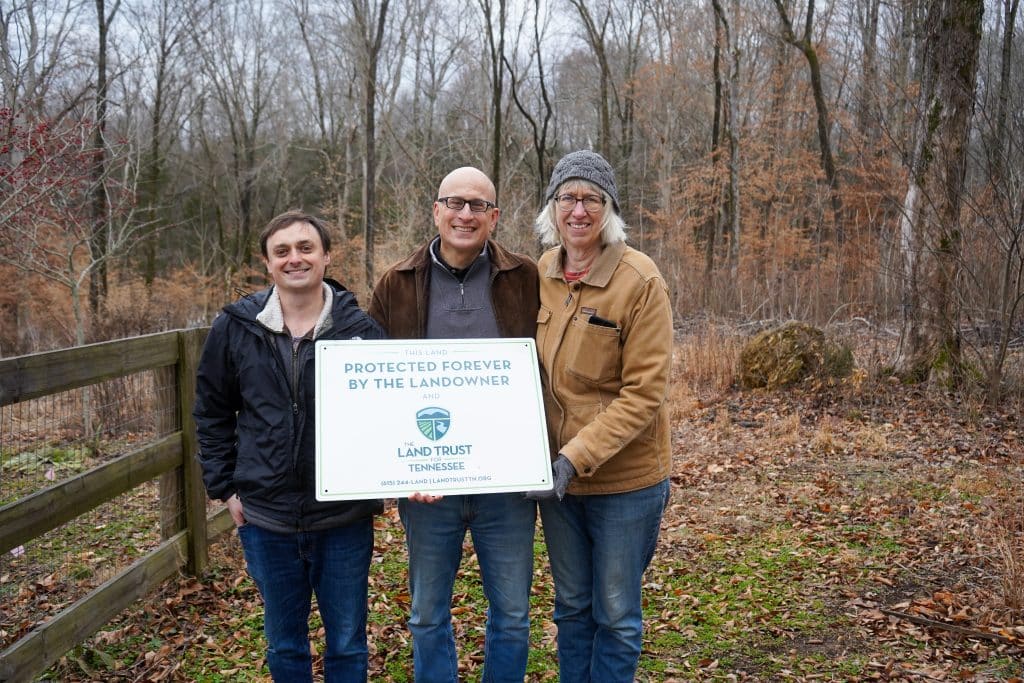Interested in Protecting Your Land?
Maybe you want to protect your family’s farm or help Tennessee retain its natural beauty by conserving your rolling hills, vast forest, or mountaintop views. Whatever your goal, we can help you achieve it.
We currently work with 400+ landowners across the state. By tailoring each project to meet the goals of individual landowners, we work with willing community members to actively protect their land. Check out our Frequently Asked Questions page to learn more.
How we work with landowners:
In most cases, we work with landowners to draft a personalized, voluntary legal agreement, known as a conservation easement, to protect their land. Each conservation easement is unique and tailored to the conservation values of the property and the landowner’s goals.
How does a conservation easement work?
A conservation easement permanently limits how the land can be developed and subdivided in order to protect its conservation values. As the holder of the easement, The Land Trust’s role is to ensure that the agreement is upheld forever.
Steps for Getting Started



Under a conservation easement, landowners may retain the rights to:
- Own and live on the land
- Sell the property or transfer it to heirs
- Farm, manage timber, hunt, fish, and recreate on the land
- Maintain and/or build a limited number of homes and other structures on the land
- Restrict or grant public access
What are the benefits of a conservation easement?
- Peace of Mind – The land will be conserved forever by The Land Trust for Tennessee in a way that satisfies the landowner’s goals and protects the conservation values of the land.
- Charitable Deduction – When you agree not to develop land, its appraised value is reduced. Landowners may be eligible for an income tax deduction based on that reduction in value.
- Reduced Property Taxes – This agreement may reduce or stabilize property taxes, depending on current zoning, land use, and current assessed value.
- Estate Planning – Conservation easements may also reduce estate taxes, help keep land in the family, and resolve potential disagreements among heirs. Your tax attorney and accountant can tell you more about specific tax benefits that may apply to your situation.
How does The Land Trust for Tennessee uphold its conservation easements?
The Land Trust’s Stewardship Team monitors each property protected by a conservation easement annually to ensure that the terms of the conservation easement are being met. Our “monitoring season” is typically January through April, so you can expect a staff member or a trained stewardship volunteer to contact you during that time. Our goal is to be a resource to landowners and to ensure that the conservation easement’s conditions are upheld—not to tell people how to use or manage their land.
In the event an accidental or unintended violation does occur, we are legally obligated to enforce the easement. However, we always aim to maintain a positive, collaborative relationship with landowners to work towards a resolution.
DOWNLOADABLE RESOURCES
Interested in protecting your land? The Land Trust for Tennessee has put together this guide for understanding conservation easements and deciding what’s right for you, your land, and your family’s goals. This packet includes information about conservation easements, tax benefits, cost, timelines and more.
We’ve put together a list of the most frequently asked questions we receive, such as, “do I still continue to own my land?”, “What happens if I want to sell or transfer my land?” and “do you have minimum acreage requirements? Find the answers to these questions and more.
Have you read through our landowner information packet and want to take the next step? Please complete this questionnaire form for us to learn more about your property. Please provide as much information as you can about the property and your interests.
Myths and Facts about Conservation Easements
Other options for protecting your land:
In multiple cases, we have worked with landowners to achieve their personal goals for their land to become a public park. And from time to time, we have also accepted outright gifts of land and trade lands. For more information about these options, please call us at (615) 244-5263.




